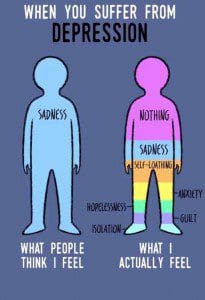Your child and you can feel pretty vulnerable when you talk to a therapist. Think about it – you are telling them your deepest thoughts and you are not sure what they are thinking! You might not know what a therapist is supposed to do or act like if you’ve never seen one before. So how do you know if things are going well in therapy?
Here are some suggestions we have:
Ask your child:
- Do they think therapy will help them?
- What do they expect out of their therapist?
Ask yourself:
- Are I willing to participate in therapy together or alone for myself if needed?
- What do I expect out of my child for therapy?
- What do I expect out of the therapist?
Discuss your answers to the above questions with your child’s therapist and your child so you can have a clear idea if what you think will happen is what will happen.
As you get to know your child’s therapist, ask yourself these questions:
- Does my child feel accepted?
- Is the therapist caring?
- Does the therapist explain things clearly?
- If the therapist and my child disagree, can they have a productive conversation about it?
- Does the therapist recognize if there is a problem and addresses it instead of avoiding it?
After you’ve gotten to know your child’s therapist, ask yourself:
- Does the therapist have a good relationship with my child?
- Does the therapist and my child get along?
- Does the therapist and my child agree on the goals of what I am going to get from treatment?
- Does the therapist get along with me?
- Does the therapist agree with me on the goals of my child’s treatment?





 Perhaps you’ve been on both sides of this conversation, maybe you’ve had it with yourself. It’s important to remember that therapy and medication are parts of the self-care and self-love process.
Perhaps you’ve been on both sides of this conversation, maybe you’ve had it with yourself. It’s important to remember that therapy and medication are parts of the self-care and self-love process.










